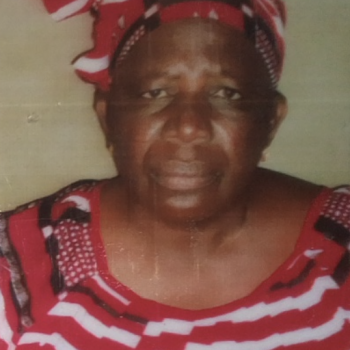Rebecca Togo is the president of CAFO Koro. CAFO is a set of ONG’s and women’s associations in Mali that aim to help improve the situation of women through training and raise awareness actions. CAFO Koro and Eyes of the world in Mali collaborate to reduce gender inequality in Koro, in the Mopti region. Togo is also a member of the Koro Town Council and serves as a facilitator of community development. She is considered a great promoter of women’s empowerment, and struggles to achieve gender equality in Mali. In this interview, she explains her relationship with Eyes of the world and the current state of women’s eye health in Mali.
What was your main motivation for running for CAFO president and how did the relationship with Eyes of the world begin?
My main motivation to become president of the CAFO was to defend the causes of women in general, especially women in vulnerable situations, and also to fight eye diseases in Koro.
On the other hand, I have been in contact with Eyes of the world since 2018, when the previous president, when she stepped down, put me in touch with the Foundation.
What are CAFO’s objectives for 2022 and in the long term?
Our organization’s objectives for this 2022 are to continue to raise public awareness of eye diseases, in order to reduce the incidence of pathologies such as trachoma, cataract or glaucoma among the population, and also to increase the number of women benefiting from income-generating activities, supported by Eyes of the world.
Then, as a long-term goal, we want to bring the Koro population and its surroundings into a change of behavior in order to reduce eye diseases, through good hygiene practices and a good healthcare at the ophthalmology center.
What are the main obstacles to your work, and what is the contribution of the bond with Eyes of the world?
The main obstacles we have in Mali are the increasing insecurity around Koro; the high levels of illiteracy, which delays a change of behavior, and the insufficient financial and material resources to treat all those who need it. In this sense, Eyes of the world helps the CAFO by improving the living conditions of women with eye problems, very significantly through income-generating activities.
What do you think are the main barriers preventing women from accessing eye care, and how do you think ophthalmological care in Mali can be improved?
The high cost of medication and eye treatment, inaccessible to women with very low incomes, and the difficulty of traveling to eye care centers are the main barriers to accessing eye care for women. However, there are ways to improve accessibility such as lowering the prices of treatment and medication; expanding eye care to the Community Health Center level; strengthening income-generating activities for women; making women’s eye care free; and organizing eye disease awareness campaigns throughout the country.
With what three words would you describe the Eyes of the world Foundation?
Work, humanism and motivation.
